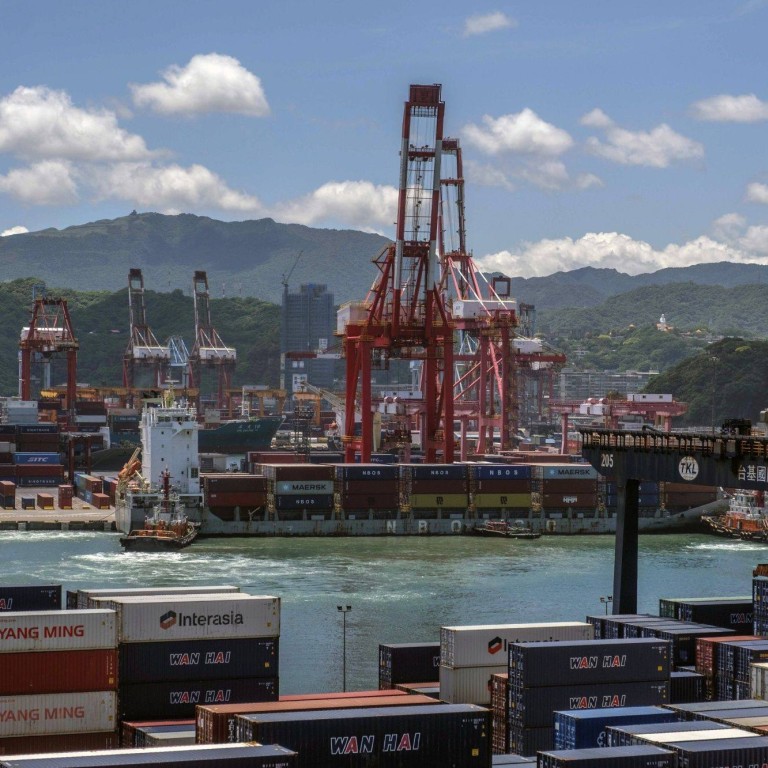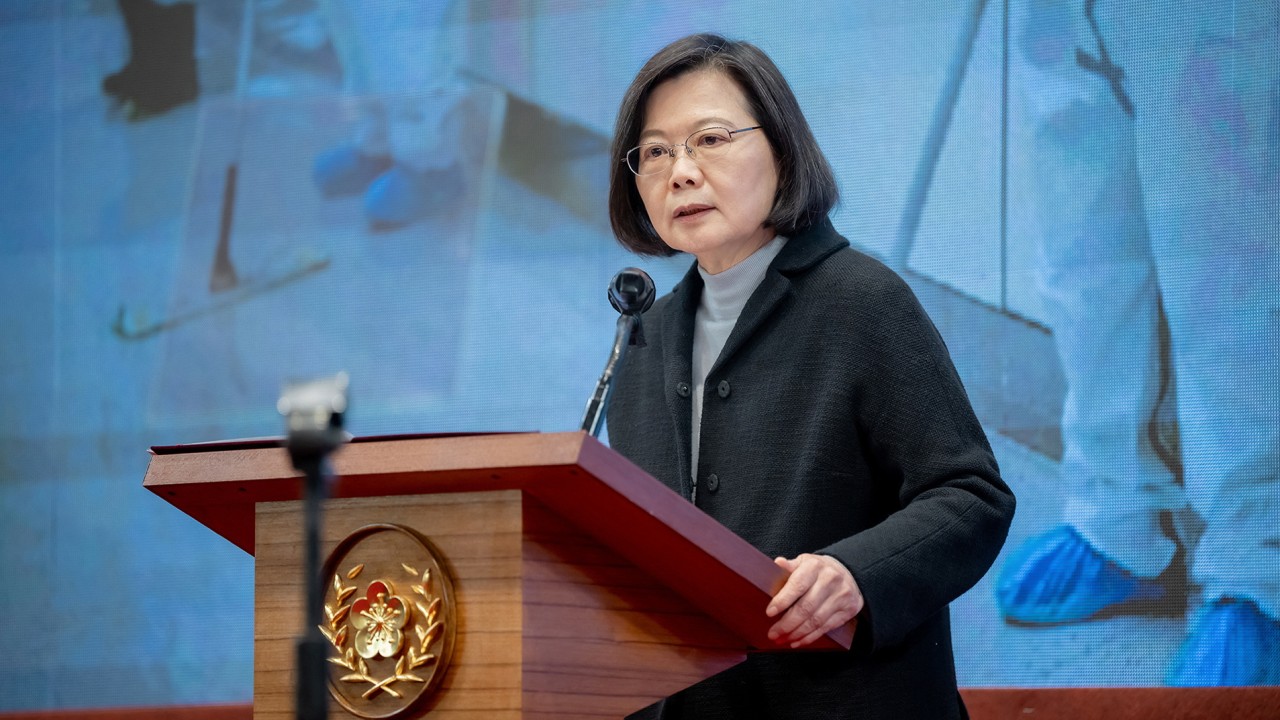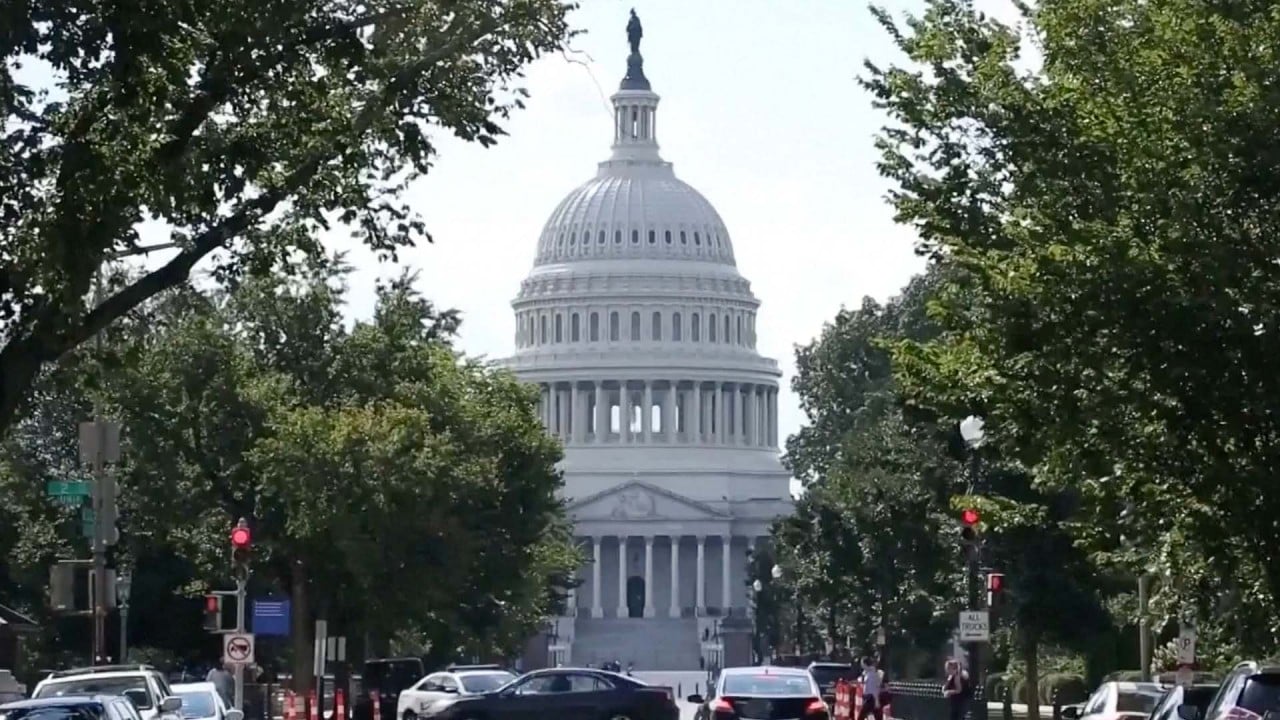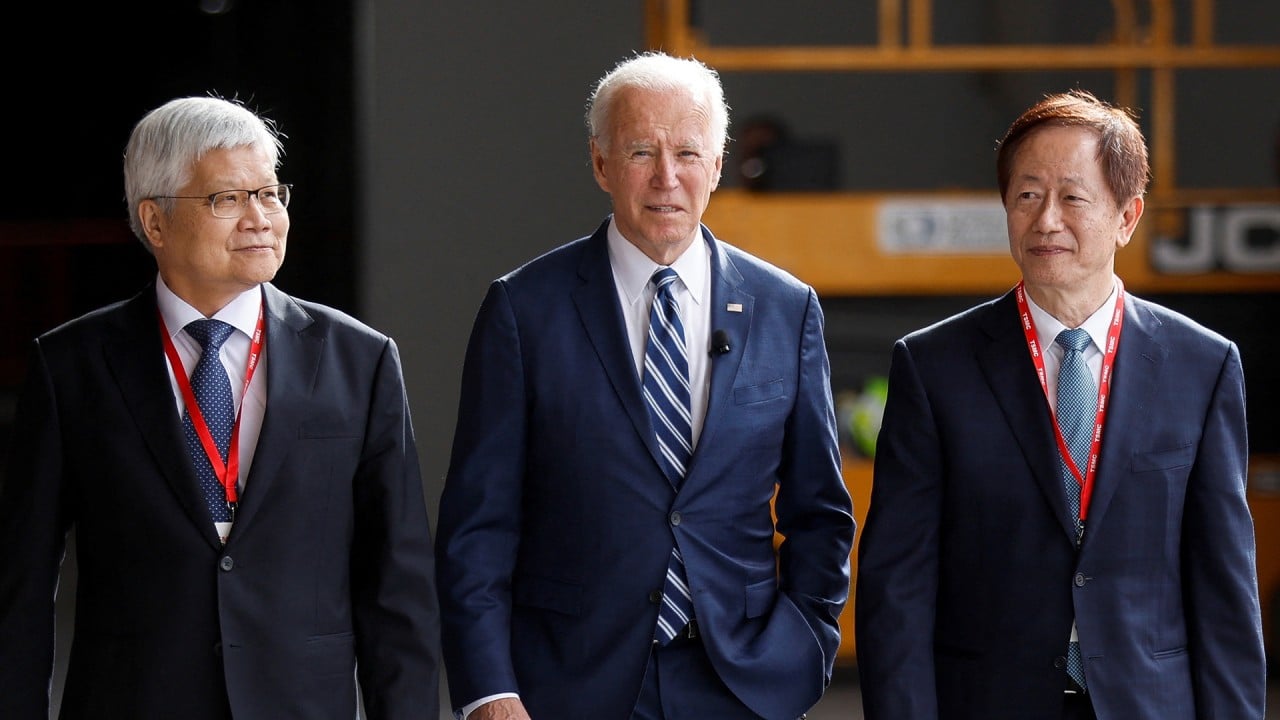
US, Taiwan expected to pursue lightweight trade deal as mainland China watches on
- While Taiwan has long sought a free-trade deal with the US, analysts do not see a breakthrough before the island’s presidential elections next year
- Negotiations under the US-Taiwan Initiative on 21st-Century Trade began in June last year as both sides’ relations deteriorated with mainland China
Taiwan and the United States will begin four days of negotiations on Saturday that are expected to deepen economic ties but fall short of a full-blown bilateral free-trade deal.
Terry McCartin, assistant US trade representative for China affairs, will lead the US delegation for the second round of in-person talks under the US-Taiwan Initiative on 21st-Century Trade, which aims to “advance mutual trade priorities based on mutual values”, the office of the US Trade Representative said in a statement.
While Taiwan has long sought a free-trade agreement with the US, analysts do not see a breakthrough this year, including any reduction in import tariffs.
“The coming trade talks will not lead to a bilateral free-trade agreement, as Taiwan has long been hoping for in the near future, since the US is not interested in signing any for the time being,” said Darson Chiu, a research fellow with the Taiwan Institute of Economic Research in Taipei.
Slowing economy, growing distrust erode mainland’s soft-power pull in Taiwan
Taiwanese officials will be seeking a low-key trade deal, as the farming and fisheries sector would be fearful a broader agreement might set off a “flood” of cheaper US agricultural products, said Woods Chen, the head of macroeconomics at Taipei-based Yuanta Securities.
Tsai must step down next year due to term limits. Her party and the opposition Kuomintang, or Nationalists, are expected to pick candidates in mid-2023 for the January 2024 presidential and parliamentary elections.
Washington will avoid signing a deal ahead of Taiwan’s presidential election in case it is accused of taking sides by giving the current ruling party credit for the breakthrough, said Rupert Hammond-Chambers, president of the US-Taiwan Business Council.
As we approach the fourth quarter of 2023, it will be difficult for the US to sign off on an agreement with Taiwan
“As we approach the fourth quarter of 2023, it will be difficult for the US to sign off on an agreement with Taiwan for fear it would be viewed as boosting the fortunes of the [ruling party],” he said.
“Therefore, even if negotiations are close to complete by the autumn, I’d wager a formal announcement that the full agreement is done would come in Taiwan’s lame duck period.”
US President Joe Biden, who faces re-election in November 2024, has not committed to any sort of trade deal with Taiwan, Chen said.
Beijing will be closely watching the trade talks, especially for any agreement that would undermine its territorial integrity.
Beijing views the self-ruled island as a breakaway region that must be unified, by force if necessary.
Countries that have diplomatic ties with Beijing, including the US, acknowledge the existence of the one-China principle, which states Taiwan is part of China. But they may not explicitly agree with it. Washington does not take a position on the status of Taiwan, though it opposes any attempt to take the island by force.
Taiwan already has a trade surplus with the US. It exported US$75 billion worth of goods to the world’s No 1 economy last year and bought US$45 billion worth of American imports, according to official Taiwanese trade data.
US officials view a trade deal with Taiwan as more “strategic” than “economic”, said Denny Roy, senior fellow at the East-West Centre think tank in Hawaii.
Taiwan’s government has long expected the US to accept an agreement as a gesture of political support
“The argument is that strengthening Taiwan’s external trade connections will increase the possibility of severe economic retaliation against China if Beijing starts a cross-Strait war, which will help deter China.
“Taiwan’s government has long expected the US to accept an agreement as a gesture of political support for Taiwan even if it does not satisfy US concerns about the economic merits.”
Mainland China for its part is likely to accept the trade talks as long as they avoid advancing pro-independence sentiment in Taiwan or provide formal diplomatic support for Taiwan, experts in Beijing say.
“If the US side sticks to its one-China principle and uses an agreed-on name for Taiwan such as ‘Chinese Taipei’, then they’ve met that condition,” said Zhao Xijun, associate dean of the School of Finance at Renmin University in Beijing.
Early investors in Vietnam got ‘good piece of cake’. Will rest stay with China?
Washington should avoid calling Taiwan “Republic of China” in the name of any deal, said Victor Gao, vice-president of the Centre for China and Globalisation in Beijing. The signatories would face “consequences”, he said, if the name offended Beijing.
But the mainland will not oppose any tariff cuts, he added.
“Lowering tariffs would be a good thing and I hope they will lower them for everyone,” he said.
Taiwan and the US began talks under the 21st century initiative in June last year as both sides’ relations deteriorated with mainland China.
The US launched its trade war with China in 2018, while Taiwan is looking for more foreign allies because it sees the mainland as a growing military threat.
If Tsai’s party pushes for Taiwan independence, the mainland may re-examine its 12-year-old Economic Cooperation Framework Agreement with Taiwan, Zhao said.
The deal was signed when Taiwan-mainland ties were at a peak and included tariff cuts in 800 categories of imports that gave the island an advantage, he said.
Taiwanese exporters have kept quiet about the prospect of a deal. Taiwan-based Evergreen Marine, the world’s fifth largest marine shipping company, had no comment on the talks, nor did a spokesman for growing Taiwanese electric scooter brand Gogoro.
In the petrochemical sector, which accounted for US$26 billion worth of exports last year, exporters would not see much change if the two governments signed a deal, said Danny Ho, an economist and chief executive of the DMI energy consulting firm in Taiwan.
Ho said exporters usually send raw materials to mainland China for manufacturing rather than shipping goods straight to the US.
Wu Tzu-jung, secretary general of the Kaohsiung-based Taiwan Frozen Seafood Industries Association, said its 200 members would welcome a deal as the US was its second biggest market after mainland China.
American consumers like Taiwanese grouper fish and some members plan to exhibit at an annual exhibition this year in Boston after a pause during Covid-19, she said.
“If Taiwan and the United States can sign a free trade deal and reduce tariffs, that would be a big help,” Wu said.
Taiwan and the US will probably sign an investment protection agreement before getting into any knottier free-trade agreement that calls for lowering import tariffs, said Chen, from Yuanta Securities.
Under the 21st century initiative, Washington has said it plans to reach agreements on trade “facilitation” and enhance trade among smaller companies.
More agriculture trade, labour standards and the removal of “discriminatory barriers” are on the agenda too.




